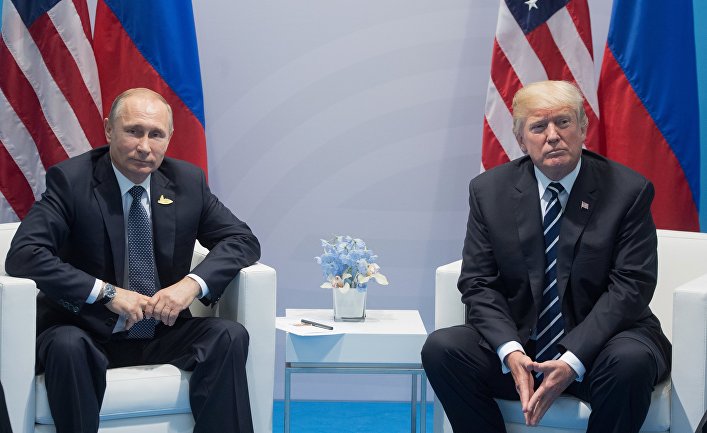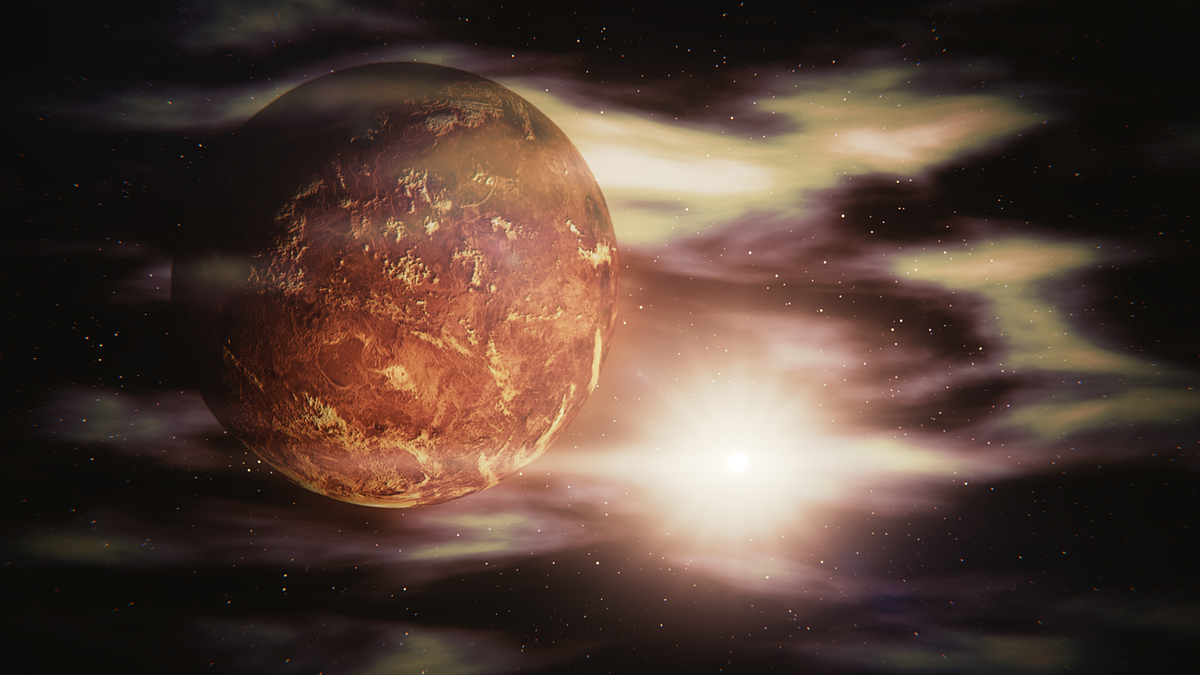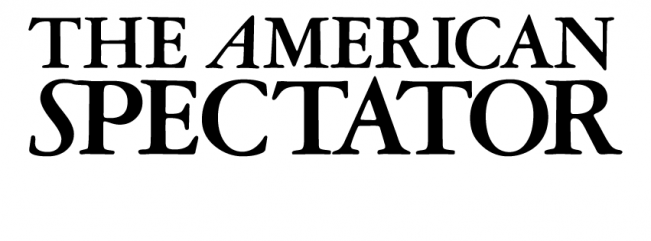
Published 9-04-2013, 15:35
 The political leadership in Russia is generally portrayed in the Western media as a power elite similar in character to that of the Soviet Union. Under the conditions of post-communism, it is contended, the leader recruits associates from the power ministries (police, security and army). Moreover, such siloviki’, are not only placed in government, but also are appointed to the boards of companies in which the government has an interest.
The political leadership in Russia is generally portrayed in the Western media as a power elite similar in character to that of the Soviet Union. Under the conditions of post-communism, it is contended, the leader recruits associates from the power ministries (police, security and army). Moreover, such siloviki’, are not only placed in government, but also are appointed to the boards of companies in which the government has an interest.Some things, however, have changed. Now the Soviet political and military threat has been superseded by economic control over energy supply. As Marshall Goldman(Petrostate: Putin, Power and the New Russia) has put it, Russia is ‘again a superpower… Gazprom, and by extension, the Russian government, are already beginning to enjoy a power over their European neighbours far beyond the dreams of the former Romanov Czars or the Communist Party Secretaries’.
This image of President Putin, acting as Puppet Master, controlling the strings of power, occludes a more complicated process of elite interaction between the Presidential leadership and economic and political leaders and institutions. The strongest political leader is dependent not only for sustenance on support of military and economic resources, but also on those who mobilise (and financially sponsor) electoral campaigns and provide political backing.
The factual, as opposed to the assertive, base in support of these commonly held views is surprisingly fragile. Marshall Goldman’s table ‘Siloviki in business’ lists only twelve current politicians with positions on the boards of companies. Others have strongly contested this conclusion. The Russian scholar, O.F. Shabrov for example, claims that the ‘siloviki’ have always been far outnumbered by businessmen and civil servants (chinovniki) in the political elite. He contends that the dominant group was, and still is, composed of people from business corporations and generalises from this that Russia is a corporate state. This means a market economy set in a regulative state operating on the basis of a politically led pact between fractions of the ruling elites—‘oligarchs’ and politicians. Such an approach brings to the forefront the role of capital and also draws attention to actual and potential differences of economic and political interests among members of the economic and political elites.
The Hybrid Economy
The political elites work in the context of a hybrid economic system. Under Western and Russian capitalism, there are two frameworks of power: state and economy. In the West and particularly in the USA, the scope and activity of the state is restricted as an actor in the economy. In Russia, the state has an independent economic property base as well as a stronger coordinating role over business. But a corporate state does not undermine capitalism—the state may strengthen it through financial support, contracts and subsidies. Moreover, unlike China, Russia is not a state capitalist formation because the private corporate sector is much more strongly entrenched.
There is a potential here for conflicts between the state and corporations if the state intervenes to direct their resources to politically inspired (though legitimate) goals, or when it redefines relationships with foreign corporate interests.
The hybrid economic system gives rise to two main elite constituencies. A statist oriented bloc leaning towards President Vladimir Putin and a liberal Western-oriented set of interests symbolized by current Prime Minister Dmitry Medvedev. This dualism (Putin’s statism and Medvedev’s liberalism) is at the centre of elite politics.
The Putin Bloc
President Putin can rely for support on a faction of the business elite as well as the political elite, which seeks to assert a state driven variety of corporate capitalism. Interests here include the power ministries (emphasized by Goldman) over whom the President has control; he is also dependent for support on a circle of directors of state owned companies or partly privatised companies, often controlled by government friendly oligarchs. Private companies become dependent on the state not only for contracts and finance, but also seek protection through tariffs.
Through joint ownership and overlapping director ships the government seeks to coordinate the Russian economy. These include state economic associations and companies in the financial block (notably German Gref), the transport sector, the agrarian complex, communications, security and technology, and the building bloc. Other supporters include: the head of Rosneft (Igor Sechin) and siloviki such as Mikhail Fradkov (Foreign Intelligence Service) as described earlier.
President Putin has not undermined the position of private business. On the contrary, he has strengthened it. It is true that he brought under state ownership and control many private companies, including the oil giant Yukos and he has also renegotiated and strengthened state control over Western oil companies with interests in Russia.
However, the Russian state’s share of ownership in energy resources is not particularly large in compara tive terms. In 2011, some 85 per cent of world energy resources are owned by state firms. Defining exactly the ‘state share’ in Russian oil production involves complicated calculations of ownership. According to Heiko Pleines, in Russia, state ownership of oil resources rose from 13 per cent in 2004 to 40 per cent in 2011. Nat Moser, on the basis of oil production and company reports on ownership, has calculated that the figures for 2004 and 2007 respectively were 15% and 37% for state owned companies—after the TNK-BP purchase by Rosneft, he further estimates that the state’s share will rise to 55 per cent in 2013. The gas industry, even under Yeltsin, remained under state control and accounted for 85 per cent of production in 2007. These figures show a remarkable rise in state ownership of oil production under Putin. However, in a global context, state owner ship of oil assets is lower than the world norm.
The nature of state ownership is put into perspective when we consider that the number of economic enterprises with foreign capital rose steadily from 16,196 in 2005 to 19,650 in 2010. There were over 4 million private companies in operation in 2010. Under Putin no controls have been exercised over capital export to restrict property rights of Russian and foreign owners. Between 1990–2010, capital export from Russia amounted to 798 billion dollars. Russia joined the WTO in 2011 (ratified in 2012) after protracted negotiations. These facts indicate the political elite’s commitment to the privatised market sector.
The other major buttress to Putin’s power is his control of political organisation and ideology. Putin’s early assault against hostile oligarchs led to restrictions on the media and an increase in state controlled TV stations. Members of the business elite—oligarchs like Gusinsky and Berezovsky—lost their TV channels. Putin has been able to secure political control: he has destroyed the vocal opposition of the economic oligarchs, and co-opted others. Putin has also firmly controlled the state media and limited foreign-based Non Government Organisations. The state controlled media support government policies. As Castells has put it: ‘What does not exist in the media does not exist in the public mind’.
Putin shifted the balance of power from corporate business to the politicians forming the ruling elite. His compact with the oligarchs has allowed them to keep their assets and profits and he has maintained political order.
Putin has his own political apparatus. He controls the United Russia Party, which effectively is a ‘party of the state’ promoting the President’s policies. Through it Putin can also channel resources as patronage as well to influence elections. In the latter he has been successful. Liberal-democratic advocates standing for election against Putin received a derisory share of the vote, even compared to the second largest party, the KPRF (Communist Party of the Russian Federation).
This is one side of the story. On the other side are more liberal market orientated politicians and interests.
The Liberal Opposition in the Political Elite
Under Yeltsin considerable privatisation of industry occurred, and the presence of Western companies with affiliates in Russia has grown under the Putin/Medvedev administration. These subscribe to a neo-liberal vision which sees Russia’s interest in a global economy with open free markets and foreign direct investment opening up the country to foreign firms. The government includes neo-liberal reformers (supported by external bodies such as the IMF) particularly in the Ministry of Finance.
Dmitri Medvedev has been belittled somewhat in the Western media and portrayed as a soft pedaling partner on a tandem (a Putin Batman and Medvedev Robin partnership), yet his policies are liberal and Western leaning. He has consistently advocated more liberal policies and, when President, was supported by neo-liberal members of the political elite.
According to Russian commentator, Aleksey Mukhin, these included Yuri Petrov of RFFI (the Russian Fund for Fundamental Research) and the Ministry of Economic Development, Igor Shuvalov (vice prime minister) and Sergey Brilev (RTP—a leading investment company). Domestically, Medvedev has had the support of political liberals such as Vyacheslav Lebedev, and people in the federal government legal system, such as Aleksandr Konovalov and others with pro-American leanings such as Aleksandr Voloshin, Arkadiy Dvorkovich and Sergey Prikhod’ko. He represents a more American orientated neo-liberal market ideology. He is reputed to have a rapport with US President Obama and is derided on critical TV programmes as an ‘American Boy’.
Medvedev’s neo-liberal outlook was expressed by his address at the World Economic Forum at Davos in 2011. He condemned ‘populist’ solutions, particularly policies of nationalization in general, and bank nationalisation in particular, and supported developments in the private sector. He also endorsed neo-liberal austerity measures which were necessary to ‘live within one’s means’. He emphasised that his policy in Russia was to ‘privatise major state assets’, to involve ‘leading global banks’ in managing Russian privatisation. The government’s Strategy 2020 Document proposes to reduce even more state guidance.
He has stressed the importance of ‘integrating Russia into the global economy’ and making the ‘Russian judicial system more effective for finance sector companies’. He envisions Russia joining the European Bank for Reconstruction & Development (EBRD) and has endorsed the principles of the EU in promoting the ‘free movement of people, capital and goods’. On 22 June 2012, Medvedev announced that the following private sations would take place: 50% of Sovkomflot, 7.58% of Sperbank, 25.2% of VTB (bank), all of United Grain Co, 49.9% of Rosalroleasing, 10% of nanotechnology holding Rusano and 25% of Russian railways. He has long declared the importance of Russia joining the Organisation for Economic Co-operation and Development, which promotes a free market economy.
Ideologically he has opposed Vladislav Surkov’s ideas on ‘sovereign democracy’, which are designed to strengthen Russia against Western values and economic interests. He views the components of democracy like a Western liberal—favouring a market society, the rule of law and accountability of government to society. In this context, external political actors also become a major determinant of the direction of economic change.
Medvedev’s liberalism is expressed in a greater concern than Putin for property rights, the rule of law, greater pluralism and democratisation. He strongly promotes a more positive attitude towards the West, particularly to the USA. Indicative of this relationship is the fact that US Vice President Joe Biden’s visit to Moscow in May 2011 was hosted by Medvedev, who was praised by Biden for his personal leadership. Biden also courted the democratic opposition during his visit.
Unlike Putin, who has the backing of the United Russia party and considerable electoral support, Medvedev is politically weak and he lacks a strong popular domestic political base. Even if one concedes that the elections are biased against his challengers, Putin has considerable charisma and is clearly favoured by public opinion reflected in his landslide electoral victories.
The domestic political weakness of the neo-liberal bloc around Medvedev pushes them to succour support from the West. Both internally and through the international media, the new liberals seek to discredit Putin personally and politically. He is alleged to be a major source of corruption as a head of a ‘mafia state’. Anatoly Chubais coined the idea of the fascist state in Russia, which was taken up by many Western journalists, such as Edward Lucas (The Economist) and Luke Harding (The Guardian). Massive Western media campaigns del egitimate the election process by amplifying the extent of election fraud. The proposed antidote is further privatisation and minimising the role of the state.
Internally, a democratic opposition has arisen in a somewhat haphazard coalition of divided civil society groupings. One leader is Mikhail Kasyanov, a previous Prime minister under Yeltsin, who has consistently campaigned against Putin. Among his demands are a new round of market reforms, a move to an American type corporate economy and the institution of the rule of law. Under the banner of Freedom House and the UK Foreign Policy Initiative, he has criticized Putin’s ‘illusion of democracy’.
The Putin-Medvedev Coalition
The Russian globalised neo-liberal capitalist class can shelter under the Putin/Medvedev tandem. During the economic crisis of 2008, for example, Russia’s oligarchs doubled the amount of cash flows diverted offshore, while concurrently demanding financial support from the administration, which they received.
Their foreign debts increased and credit which could have been utilised for domestic economic development was siphoned off in profits. Support for the private sector was shown by the government bailing out privatised companies, rather than nationalising them.
A Russian capitalist class coupled to foreign affiliates is able to maintain an area of autonomy against the Putin administration. Any concerted attack by the political leadership against the oligarchs as a class would undoubtedly have foreign repercussions and lead to internal instability. To maintain a political equilibrium, rather like the UK’s David Cameron and Nick Clegg coalition, the political leadership concedes to these pressures. The tensions between the Russian leadership and leading Western trading nations reflect the attempts of President Putin to maintain a Russian national presence in strategic industries and to support the Russian emerging transnational energy companies.
President Putin might like to move further in the direction of a national capitalist economic formation, combining a state-led economic formation with significant private, as well as state owned capital. But he and his circle are currently limited by the constraints not only of the domestic oligarchs, but also of foreign companies, especially those with affiliates in Russia.
David Lane is Emeritus Fellow of Emmanuel College at the University of Cambridge. He is an Academician of the Academy of Social Sciences (UK).



_jpg/250px-ElbeDay1945_(NARA_ww2-121).jpg)








